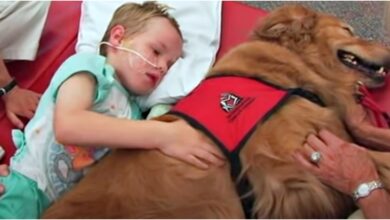Sheltie Lifespan – What to Expect & How to Help a Sheltie Live Longer

Shetland Sheepdogs, affectionately known as Shelties, are renowned for their intelligence, loyalty, and beauty. Originating from the Shetland Islands in Scotland, these small to medium-sized dogs were bred for herding and are known for their agility and obedience. Shelties have a double coat, a distinctive mane and a frill around the neck, and come in colours such as sable, black, and blue merle. They make excellent family pets due to their friendly nature, trainability, and keen sense of alertness. When considering bringing a Sheltie into your life, understanding their lifespan and potential health issues is crucial for providing the best care possible. On average, Shelties live between 12 to 14 years, a testament to their robust nature when well-cared for. However, their lifespan can be influenced by various genetic and environmental factors, including several common health challenges that owners should be aware of to ensure their Sheltie lives a long, healthy life.
Lifespan Expectancy of a Sheltie
Shetland Sheepdogs typically enjoy a long lifespan, with many reaching 12 to 14 years of age. This expectancy is relatively high compared to other breeds, thanks in part to their size, genetic diversity, and active lifestyle. Factors that contribute to a Sheltie’s longevity include genetics, diet, exercise, and regular veterinary care. A balanced diet, consistent exercise, mental stimulation, and preventive veterinary medicine play crucial roles in maximizing their lifespan. Owners should be attentive to their Sheltie’s health and well-being, adapting care as necessary to address any age-related changes or health concerns that arise throughout their lives.
Common Health Challenges
Hip Dysplasia
Hip dysplasia, less common in Shelties than in larger breeds, still poses a risk. It’s a genetic condition where the hip joint doesn’t form correctly, leading to arthritis and mobility issues. Early detection through screening and managing weight can alleviate symptoms, but severe cases might require surgical intervention.
Collie Eye Anomaly
Collie Eye Anomaly (CEA) is a hereditary condition that affects the eyes and can range from mild to severe, potentially leading to blindness. There’s no cure for CEA, but genetic testing can identify carriers to prevent breeding affected individuals. Regular eye exams can help manage the condition.
Von Willebrand’s Disease
This is a blood disorder that prevents proper blood clotting, leading to excessive bleeding from injuries or surgery. It’s a genetic condition, and while there’s no cure, it can be managed with treatments that support clotting during procedures that might lead to bleeding.
Dermatomyositis
Dermatomyositis is an inflammatory disease affecting the skin and muscles, leading to lesions and muscle weakness. It’s seen more often in Shelties than in many other breeds. The severity can vary, and while there’s no cure, symptoms can often be managed with medications and care to protect the skin.
Hypothyroidism
Hypothyroidism, a condition where the thyroid gland doesn’t produce enough hormones, is common in middle-aged to older Shelties. Symptoms include weight gain, lethargy, and skin problems. It’s easily treatable with daily medication to replace the missing hormones.
Progressive Retinal Atrophy (PRA)
PRA is a genetic condition that leads to the degeneration of the retina and eventual blindness. There’s no cure for PRA, but genetic testing can identify carriers to inform breeding decisions. Affected dogs can often adapt well to their reduced vision as long as their environment remains consistent.
Understanding these health challenges is essential for Sheltie owners to take proactive steps in caring for their pets. Regular veterinary check-ups, genetic testing where applicable, and attentive care to their Sheltie’s needs can help mitigate these issues, ensuring a long, happy life together.
How Can I Extend the Lifespan of My Sheltie?
Shetland Sheepdogs, or Shelties as they are affectionately known, are cherished for their intelligence, loyalty, and striking appearance. These small but hardy dogs possess a spirited nature and a deep connection with their human companions, making them a popular choice among pet owners. Known for their longevity, Shelties can enjoy a lifespan of 12 to 14 years, sometimes even longer, with proper care and attention. However, like all breeds, Shelties face certain health challenges that can impact their quality of life and longevity. Understanding how to navigate these issues, provide optimal nutrition, ensure sufficient exercise, and foster a supportive and healthy environment are key steps owners can take to extend the lifespan of their beloved Sheltie. This comprehensive guide will explore actionable strategies and insights into maintaining the health and happiness of your Sheltie, aiming to enhance those precious years together.
Optimal Nutrition for Shelties
Optimal nutrition plays a pivotal role in extending the lifespan of a Sheltie. A balanced diet tailored to their specific needs can help prevent obesity, which is a common issue that can lead to more serious health problems such as diabetes and joint issues. High-quality dog food that is rich in lean proteins, whole grains, and essential fatty acids, along with a careful balance of vitamins and minerals, supports overall health, energy levels, and a robust immune system. Avoiding overfeeding and monitoring treatment intake is also crucial in maintaining a healthy weight. Consulting with a veterinarian can provide personalized dietary recommendations to ensure your Sheltie receives all the nutrients needed for a long and healthy life.
Regular Exercise and Mental Stimulation
Shelties thrive on regular exercise and mental stimulation. Due to their herding heritage, they possess high energy levels and an intelligent mind that craves engagement. Daily physical activities such as walking, playing fetch, or agility training can help maintain a healthy weight, strengthen their cardiovascular system, and reduce the risk of obesity-related health issues. Mental stimulation can be provided through puzzle toys, training sessions, and interactive games that challenge their intellect. Balancing physical and mental exercise not only keeps your Sheltie physically fit but also mentally sharp, contributing significantly to their overall well-being and longevity.
Preventive Veterinary Care
Preventive veterinary care is essential for identifying and managing health issues before they become serious. Regular check-ups, vaccinations, and routine screenings for common Sheltie health problems such as hip dysplasia, Collie Eye Anomaly, and thyroid issues can catch conditions early when they are most treatable. Dental care, including regular teeth cleaning, helps prevent periodontal disease, which can affect overall health. Establishing a relationship with a trusted veterinarian ensures continuous monitoring of your Sheltie’s health, allowing for timely intervention and management of any health concerns.
Managing Genetic Health Issues
Understanding and managing genetic health issues common in shelters can significantly impact their lifespan. Conditions such as Collie Eye Anomaly, Von Willebrand’s Disease, and hip dysplasia require attentive care and, in some cases, proactive measures such as genetic testing, specialized care, or surgery. Informing yourself about the signs and symptoms of these conditions enables you to seek prompt veterinary care, potentially preventing complications. Responsible breeding practices also play a role in minimizing the risk of genetic disorders, highlighting the importance of choosing breeders who prioritize health and genetic testing.
Socialization and Emotional Well-being
Socialization and emotional well-being are critical for a Sheltie’s quality of life. Shelties are sensitive dogs that form strong bonds with their families and can be prone to anxiety if not properly socialized. Early socialization, consistent training, and positive reinforcement help them develop into well-adjusted adults. Providing a safe and loving environment, along with regular interaction and affection, supports their emotional health. Reducing stress through companionship, play, and a stable routine can also enhance their lifespan by preventing stress-related health issues.
Weight Management
Proper weight management is crucial for the health and longevity of Shelties. Overweight Shelters are at a higher risk for developing conditions such as heart disease, diabetes, and joint problems. Regular exercise, portion control, and a balanced diet are key factors in maintaining an ideal weight. Monitoring your Sheltie’s weight and body condition regularly, and adjusting their diet and exercise regimen accordingly, helps prevent obesity and its associated health risks, ensuring a longer, healthier life.
Regular Health Screenings
Regular health screenings are a cornerstone of preventive health care for shelters. These screenings can detect issues early before they become serious problems. Annual or bi-annual vet visits should include blood tests to check for signs of infection, organ dysfunction, or conditions like hypothyroidism, common in the breed. Eye examinations by a certified veterinary ophthalmologist can screen for inherited conditions like Collie Eye Anomaly and Progressive Retinal Atrophy, allowing for early intervention. Heart monitoring is also essential, as some Shelties may develop heart conditions as they age. These regular check-ups provide an opportunity to discuss any concerns with your veterinarian and adjust your dog’s health care plan as needed.
Dental Care
Dental health is often overlooked in canine care but is vital for a Sheltie’s overall well-being. Poor dental health can lead to gum disease, and tooth loss, and can introduce bacteria into the bloodstream, affecting major organs and potentially leading to life-threatening conditions. Regular dental check-ups, professional cleanings, and daily tooth brushing can prevent these issues. Dental chews and toys designed to clean teeth can also be part of your Sheltie’s dental hygiene routine. Starting dental care early and maintaining it throughout your dog’s life can prevent many health problems and contribute to their longevity.
Environmental Enrichment
Creating a stimulating environment for your Sheltie can have a profound impact on their mental and physical health. Environmental enrichment involves providing opportunities for your dog to engage in natural behaviours such as exploring, foraging, and playing. This can be achieved through interactive toys, safe outdoor access, and varied walks that allow them to experience new sights, smells, and sounds. Enrichment prevents boredom and stress, reducing the risk of anxiety-related disorders and increasing overall happiness, which can positively affect lifespan.
Protection from Hazards
Protecting your shelter from environmental hazards is another important aspect of extending their lifespan. This includes safeguarding them from extreme temperatures, toxic plants, and harmful household substances, and preventing access to dangerous areas like busy roads. Use of flea, tick, and heartworm prevention is also crucial to protect them from these common parasites and the diseases they can transmit. Taking these precautions helps prevent accidents and illnesses, contributing to a safer, healthier life for your Sheltie.
Quality Rest
Ensuring your Sheltie has a comfortable, quiet place to rest is essential for their health. Quality sleep supports immune function, stress reduction, and healing. Shelties, especially as they age, will appreciate a warm, soft bed in a calm area of your home. Orthopaedic beds can provide extra support for older dogs with joint issues, helping to ease discomfort and promote better sleep quality.
Community and Support
Being part of a community of Sheltie owners can offer invaluable support and resources for extending your dog’s lifespan. Community groups, whether online or in person, provide a platform to share experiences, advice, and support. They can be a great source of information on everything from vet recommendations to tips on diet, exercise, and training. Additionally, breed-specific rescue organizations and clubs often host events that can enrich your Sheltie’s social life and provide opportunities for physical activity and mental stimulation.
By implementing these strategies, you can significantly influence the health and longevity of your Sheltie. Providing optimal nutrition, ensuring regular exercise and mental stimulation, seeking preventive veterinary care, managing genetic health issues, fostering emotional well-being, and maintaining a healthy weight are all fundamental aspects of caring for your Sheltie. With the right care and attention, you can enjoy the companionship of your intelligent and loving Sheltie for many years to come.
Frequently Asked Questions About The Lifespans of Shelties

1. What is the average lifespan of a Sheltie?
The average lifespan of a Sheltie, or Shetland Sheepdog, ranges from 12 to 14 years. This expectancy is relatively robust for a dog of their size, but it’s important to note that individual lifespans can vary significantly based on a variety of factors. Genetics play a key role, with some lines naturally living longer due to inherited health and vigour. However, the care a Sheltie receives is equally influential. Proper nutrition, regular exercise, and attentive veterinary care can all extend a Sheltie’s life. Preventive care, including vaccinations and regular health screenings, helps identify and address potential health issues early on. Mental stimulation and emotional well-being also contribute to their overall health, potentially impacting their lifespan. Common health issues such as dermatomyositis, Collie Eye Anomaly, and hip dysplasia can affect Shelties, so awareness and proactive management of these conditions are crucial. Ultimately, a combination of good genetics, excellent care, and a healthy environment can help ensure your Sheltie lives a long, happy life.
2. Can diet affect the lifespan of my Sheltie?
Yes, diet significantly impacts the lifespan and overall health of Shelties. Feeding your Sheltie a balanced, high-quality diet tailored to their specific life stage, size, and activity level is essential for maintaining optimal health. A proper diet helps prevent obesity, a common issue in dogs that can lead to serious health problems such as diabetes, heart disease, and joint issues, thereby shortening their lifespan. Nutrients like proteins, fats, carbohydrates, vitamins, and minerals must be in the correct balance to support their metabolic needs, immune system, and organ function. Additionally, special attention should be given to the diet of Shelties with specific health conditions. For example, those with a tendency towards dermatomyositis may benefit from a diet high in omega-3 fatty acids to support skin and coat health. Regular consultations with a veterinarian can help ensure that your Sheltie’s nutritional needs are being met, potentially extending their lifespan by preventing diet-related diseases.
3. How can exercise extend my Sheltie’s lifespan?
Regular exercise is vital for extending the lifespan of Shelties. It helps maintain a healthy weight, reduces the risk of cardiovascular disease, improves metabolic health, and keeps muscles and joints strong. Exercise also plays a crucial role in mental health, helping to reduce anxiety and prevent behavioural issues. Activities should be tailored to your Sheltie’s age, health status, and energy levels. Moderate daily exercise, such as walking, playing fetch, or participating in agility training, can significantly enhance their quality of life. Furthermore, exercise offers opportunities for bonding and socialization, which are essential for emotional well-being. It’s important to provide a variety of activities to keep your Sheltie engaged and to avoid repetitive stress injuries. Consistent physical activity can help prevent common health issues associated with sedentary lifestyles, such as obesity, diabetes, and joint problems, thereby potentially extending your Sheltie’s lifespan.
5. How do genetics influence the lifespan of Shelties?
Genetics play a significant role in determining the lifespan of Shelties. Like all breeds, Shelties inherit traits from their parents, including predispositions to certain health conditions that can affect their longevity, such as Collie Eye Anomaly, Hip Dysplasia, and Progressive Retinal Atrophy. Being aware of a Sheltie’s genetic background can help owners and veterinarians anticipate and manage these health issues more effectively. Choosing a reputable breeder who conducts thorough health screenings and genetic testing on breeding pairs is crucial for minimizing the risk of inherited diseases. Additionally, genetic diversity within the breed can influence overall health and lifespan, with a greater diversity often correlating with fewer inherited health problems. While genetics is a factor that owners have limited control over, understanding and managing its implications through preventive care and early intervention can help extend the lifespan of Shelties.
6. What preventive measures can I take to extend my Sheltie’s lifespan?
Preventive measures are key to ensuring a long and healthy life for your Sheltie. Regular veterinary check-ups are essential for early detection and management of potential health issues. These visits often include vaccinations, parasite control, and screenings for common genetic conditions such as Collie Eye Anomaly and Hip Dysplasia. Dental care, through both professional cleanings and at-home tooth brushing, can prevent dental diseases that can affect overall health. A balanced diet tailored to their age, size, and activity level helps maintain optimal weight and supports systemic health. Exercise tailored to your Sheltie’s needs promotes cardiovascular health and helps prevent obesity. Socialization and mental stimulation prevent stress and anxiety, contributing to emotional well-being. Additionally, spaying or neutering can prevent certain health issues and behaviours that may reduce lifespan. Implementing these preventive measures, along with attentive care to any signs of illness, allows for timely intervention and can significantly extend the lifespan of your Sheltie.
7. How does spaying/neutering affect a Sheltie’s lifespan?
Spaying or neutering your Sheltie can have a positive impact on their lifespan. These procedures can prevent reproductive cancers and diseases, such as mammary tumours in females and testicular cancer in males, as well as reduce the risk of prostate issues. Additionally, spaying and neutering can lead to a reduction in behaviours that may put your Sheltie at risk, such as roaming, which can expose them to accidents or fights with other animals. There is some evidence to suggest that spayed and neutered dogs may live longer than their intact counterparts due to a lower risk of certain diseases and behaviours that can shorten a dog’s life. It’s important to consult with your veterinarian about the best timing for these procedures, as recent research suggests that the timing of spaying and neutering can affect the risk of developing other health issues, such as orthopaedic conditions, in certain breeds and sizes of dogs.
8. Can regular grooming extend my Sheltie’s lifespan?
Regular grooming plays a vital role in maintaining your Sheltie’s health and can indirectly extend their lifespan. Grooming prevents matting and skin infections by removing dirt, debris, and loose hair, promoting healthier skin and coat. During grooming sessions, you can check for signs of health issues such as lumps, bumps, parasites, or skin problems that might require veterinary attention. Ear cleaning and nail trimming, as part of a grooming routine, can prevent infections and mobility issues, respectively. While grooming itself may not directly increase lifespan, it is an essential component of overall health maintenance that can prevent complications and identify health issues early, leading to more effective management or treatment.
9. How important is mental stimulation for a Sheltie’s lifespan?
Mental stimulation is crucial for maintaining a Sheltie’s overall health and can contribute to a longer lifespan. Shelties are intelligent, active dogs that thrive on engagement and challenges. Lack of mental stimulation can lead to boredom and stress, which may manifest as destructive behaviours or anxiety-related health issues. Providing a variety of toys, puzzles, and training activities can keep your Sheltie mentally stimulated and happy. Activities such as agility training, obedience, or even learning new tricks can offer mental exercise. Regularly introducing new experiences and environments can also help keep their minds active. Mental stimulation is as important as physical exercise in promoting a healthy, balanced lifestyle for your Sheltie, potentially extending their lifespan by reducing stress and enhancing their overall well-being.
10. What signs of ageing should I look for in my Sheltie?
As Shelties age, they may show several signs of ageing that indicate changes in their health needs. Common signs include a decrease in activity level, more time spent sleeping, greying fur, especially around the muzzle and face, and a possible decrease in vision and hearing. You might also notice changes in weight, either gain or loss, which can be indicative of metabolic changes or other health issues. Dental issues may become more apparent, affecting their ability to eat. Some older Shelties may develop arthritis, leading to stiffness and difficulty with mobility. Behavioural changes, such as increased irritability or confusion, can also occur. Monitoring these signs of ageing closely allows for timely adjustments in care, diet, and veterinary support, helping to manage the effects of ageing and maintain quality of life in your senior Sheltie.
11. Can a Sheltie live outdoors?
While shelters are adaptable and enjoy outdoor activities, they shouldn’t live outdoors full-time. Shelters form strong bonds with their families and thrive on social interaction, which is limited when they are kept outside. Additionally, their double coat provides some protection against the elements, but extreme temperatures, whether hot or cold, can pose significant health risks. Outdoor living also exposes Shelties to increased risks of parasites, predators, and theft. Providing a safe, comfortable indoor living space where they can be close to their family, combined with ample outdoor playtime and exercise, best supports a Sheltie’s physical and emotional well-being. Ensuring they have a warm, safe, and interactive environment indoors will not only keep them healthier but can also extend their lifespan by protecting them from external hazards and stress.
12. How does socialization impact a Sheltie’s lifespan?
Socialization has a profound impact on a Sheltie’s lifespan by influencing their mental health and behavioural well-being. Properly socialized Shelties are more likely to be well-adjusted, confident, and less prone to stress and anxiety, which can have detrimental effects on physical health. Early socialization—exposure to a variety of people, animals, environments, and experiences—helps prevent the development of fear-based behaviours and aggression, which can lead to stressful situations and potential injuries. Socialization also encourages physical activity and mental stimulation, both of which are key components of a healthy lifestyle that can extend a Sheltie’s lifespan. Furthermore, social dogs tend to have more opportunities for regular veterinary care, as they are easier to handle during check-ups and treatments. Owners should aim to continue socialization throughout their Sheltie’s life to maintain their social skills and enrich their mental and emotional well-being.
13. What are the benefits of agility training for Shelties?
Agility training offers numerous benefits for Shelties, positively affecting their physical health, mental stimulation, and emotional well-being, which can contribute to an extended lifespan. Shelties, with their high intelligence and energy, excel in agility—a sport that involves navigating a course of obstacles under the guidance of their handler. This form of exercise strengthens their muscles, improves cardiovascular health, enhances coordination and flexibility, and helps maintain a healthy weight. Mentally, agility training challenges them to think, learn, and solve problems, keeping their minds active and engaged. Emotionally, it strengthens the bond between shelters and their owners, providing a sense of accomplishment and confidence. The social aspect of training and competing can also benefit their overall well-being. By addressing physical, mental, and emotional needs, agility training is a comprehensive activity that can significantly enhance a Sheltie’s quality of life and longevity.
14. How can I manage my senior Sheltie’s health?
Managing the health of a senior Sheltie requires a comprehensive approach that addresses their changing needs. Regular veterinary check-ups are crucial for early detection and management of age-related conditions such as arthritis, heart disease, and kidney issues. Adjusting their diet to meet lower energy needs while ensuring it is rich in nutrients essential for older dogs can help maintain their health and weight. Incorporating gentle exercise into their routine, such as short walks or light play, can help maintain muscle tone and joint flexibility, reducing the impact of arthritis. Providing orthopaedic bedding can offer comfort and support for achy joints. Mental stimulation remains important for senior Shelties to keep their minds sharp, so continue engaging in activities that are suitable for their age and physical condition. Finally, regular dental care is essential to prevent oral health issues that can affect their overall well-being. Tailoring care to the individual needs of your senior Sheltie can help ensure they enjoy their golden years in comfort and happiness.
15. Are there any breed-specific dietary needs for Shelties?
While shelters do not have unique dietary needs vastly different from other breeds, paying attention to certain aspects of their diet can help address breed-specific health concerns and contribute to a longer, healthier life. High-quality dog food that is appropriately portioned to avoid obesity—a common issue in less active Shelties—can help prevent weight-related health problems. Foods rich in omega-3 fatty acids can support coat health and may help manage inflammatory conditions such as dermatomyositis, which Shelties are predisposed to. Additionally, diets formulated for small to medium breeds can ensure the kibble size is suitable for Shelties, promoting better dental health. Since some Shelties may be prone to genetic conditions like hypothyroidism, ensuring their diet includes adequate levels of iodine can support thyroid health. Always consult with a veterinarian to tailor your Sheltie’s diet to their specific health needs, life stage, and activity level, ensuring they receive the nutrition they need to thrive.




